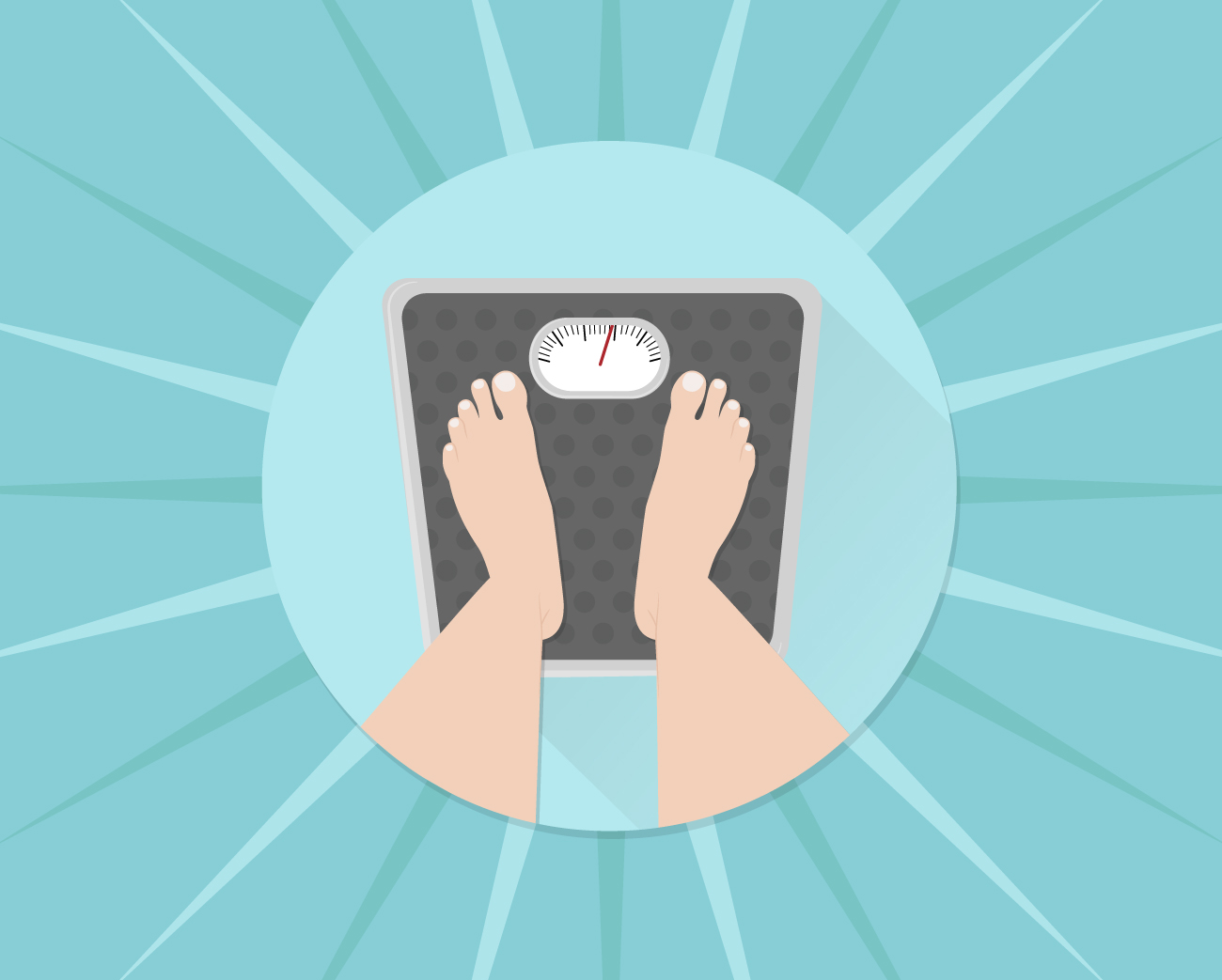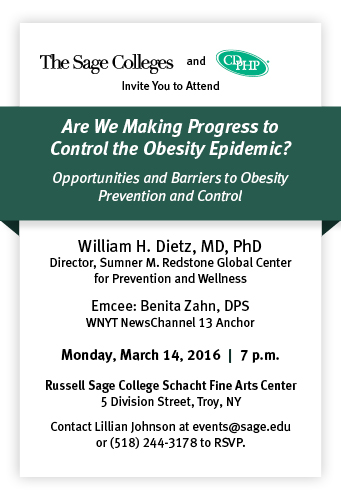Stemming the Rising Obesity Epidemic: Strategies and Challenges

Americans are setting a record that is a major cause for concern: Preliminary data from the Centers for Disease Control (CDC) indicate that the obesity rate in adults in the U.S. has risen to an all-time high of 30.4 percent. Equally alarming are the studies that show that upwards of 18 percent of children and 21 percent of teens in the U.S. are obese. That is almost triple the number of adolescents and children affected in 1980. 
So what exactly is fueling this epidemic? What measures are effective in “battling the bulge” in our community, and what hurdles stand in the way of progress? Is there any cause for optimism? Those are some of the questions that a renowned obesity expert – William H. Dietz, MD, PhD – will address in a presentation on Monday, March 14 at 7 p.m. on the Russell Sage College campus. The talk is free and open to the public, but registration is requested.
What is Obesity?
Obesity is best determined by calculating body mass index (BMI), which is a measure based on the relationship between height and weight that is used to estimate your percentage of body fat. Adults with a BMI greater than 30 are considered to be obese; in children, the threshold is a BMI (adjusted for age) at or above the 95th percentile for kids of the same age and sex.
What Causes Obesity?
Obesity is a complex condition that can result from a number of causes. Among the factors that can contribute to its development are:
 Unhealthy dietary patterns (e.g., reliance on low-cost processed or high-caloric convenience foods)
Unhealthy dietary patterns (e.g., reliance on low-cost processed or high-caloric convenience foods)
 Physical inactivity
Physical inactivity
 Environmental conditions (e.g., a lack of safe green space for recreation; limited access to fresh fruits and vegetables
Environmental conditions (e.g., a lack of safe green space for recreation; limited access to fresh fruits and vegetables
 Genetics and family history/culture
Genetics and family history/culture
 Stress
Stress
 Lack of sleep
Lack of sleep
 Some medications, such as antidepressants and steroids
Some medications, such as antidepressants and steroids
 Certain diseases, such as Cushing’s disease or low thyroid levels
Certain diseases, such as Cushing’s disease or low thyroid levels
 Aggressive food marketing practices
Aggressive food marketing practices
What Are the Health Consequences of Obesity?
One of the reasons that the obesity epidemic is such a concern is its association with other serious health risks and disease conditions, including, but not limited to, the following:
- Heart disease and stroke
- Type 2 diabetes
- Hypertension (high blood pressure)
- Abnormal cholesterol and triglyceride levels
- Osteoarthritis
- Certain types of cancer, such as those involving the colon, breast, endometrium, and gallbladder
- Depression
- Sleep apnea and other breathing difficulties
- Body pain and mobility issues
- Reproductive problems
The good news is that losing even 5 to 10 percent of your current weight can help reduce your risk of developing these conditions.
What Has Been Done to Combat the Obesity Epidemic?
No one strategy has been found to be effective in stemming the obesity epidemic. However, some progress has been made recently, as evidenced by the following:
- Increased attention has been focused on the need to limit “screen” time and boost opportunities for physical activity, particularly for children.
- In many instances, school meal plans have been changed to offer more nutritious and balanced meals containing less sugar, fat, and salt and more fruits and vegetables.
- Likewise, workplaces are taking steps to promote their employees’ health and wellness. For example, some provide fitness equipment, standing desks, and healthy eating options in their on-site cafeterias and vending machines.
- Community planning boards are increasingly likely to take healthy lifestyle factors into consideration, which can have a positive bearing on decisions to incorporate bike and fitness paths, farmers’ markets, sidewalks, and recreational green space into their plans.
- In response to laws and/or public pressure, more restaurants are providing calorie counts for menu items and identifying those meals that are heart-healthy or that contain high amounts of fat or salt.

Join Us! If you’re interested in learning more about the latest strategies, trends, and information on curbing obesity, we invite you to attend Dr. Dietz’s presentation at Sage College on Monday, March 14 at 7 p.m. Contact Lillian Johnson at events@sage.edu or (518) 244-3178 for more information or to register.
You can also consult the CDPHP® website for information on effective weight control measures and our Healthier Generation Benefit, designed to address the prevention, assessment, and treatment of childhood obesity.
Scale image by Freepik
Burger, Chair, Buildings, dna strand, stress, lack of sleep, medications, diseases, and marketing icons made by Freepik from flatiron.com
 The Daily Dose
The Daily Dose
Comments are closed.